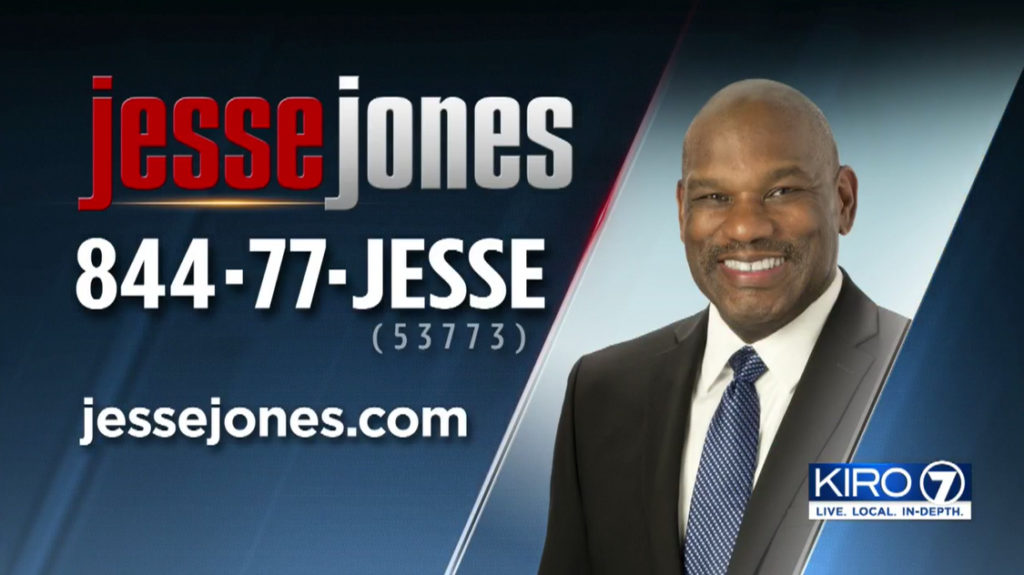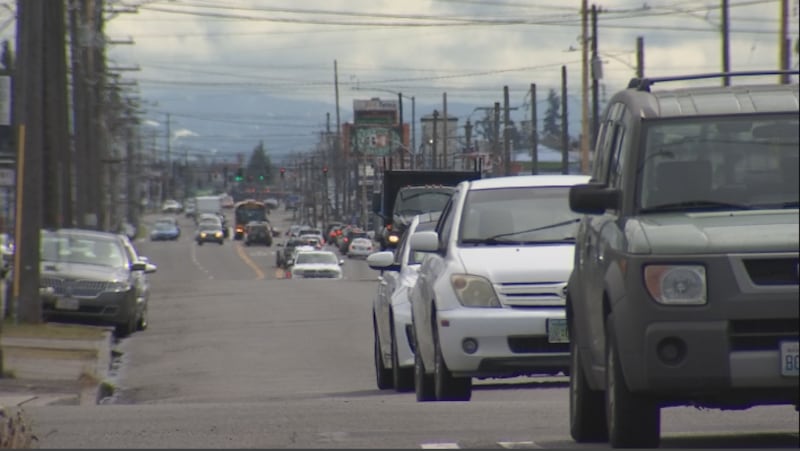AUBURN, Wash. — The median price for a used car listed on CARFAX has jumped 47 percent in two years to $28,000. But what happens if that pricey car quits or needs major repairs soon after purchase?
Justin Baas bought a 2012 Ford Taurus on Friday. On Wednesday, he took the car to a mechanic.
“Well, the entire underside is covered in rust,” says Baas. “They ended up having to replace the control arms. So that was $1,500 because the bolts on the car on the subframe were so rusted they were seized up. So they had to actually saw the bolts off because they weren’t serviceable.”
The car he just spent more than $13,000 on now needs $4,000 in repairs.
“What’s going through my mind is, ‘oh crap this is catastrophic,’” says Baas.
When he complained to the dealership, Baas says a salesperson reminded him of a document he’d signed: the implied warranty negotiation statement.
Baas had signed it and gave up his warranty rights when he purchased the car, and now he’s responsible for all repair costs.
“In essence, pulled out that you signed the ‘as is’ warranty. There is no warranty,” says Baas.
Implied warranties exist but many buyers sign them away.
Most used cars sold out of dealerships in Washington have an implied warranty. That means the car will be fit for purposes of ordinary driving, be reasonably safe, without major defects, and will be of the average quality of similar cars available for sale in the same price range.
According to Washington Attorney General Bob Ferguson, that warranty must be negotiated and signed before a deal is done.
“So you might say, OK we’ll knock off another grand off the price but you’re taking this ‘as is,’ Bob. And that means when you drive off and it breaks down, it’s on you. Because you’re giving up the warranty that’s here. Well, that’s a negotiation. I’m getting something for signing away that warranty that covers me under the law,” says Ferguson.
So, where was the negotiation in Justin Baas’s case? He says there wasn’t one.
“No! Nope. It was part of the thick stack of papers that they always hand you when you’re closing a car sale. Sign here. Sign here. Sign here,” says Baas.
Mo Aliabady is the owner of South Tacoma Auto. He had nothing to do with the sale of Justin’s car. But he’s the best guy I know who understands implied warranties from the dealer’s perspective.
“Unfortunately there’s a lot of ambiguity in this law, which in my opinion needs to be cleared up,” says Aliabady.
First, what does “as is” really mean?
“In other words, if this car falls in two pieces outside of my driveway is the vehicle sold as is. It’s your car. It’s no longer mine,” he says.
But he does believe the implied warranty law needs some work.
“I would suggest that the Attorney General would take a look at this law and make it more precise,” says Aliabady.
“This is one of the top complaints we hear about from consumers.”
The Attorney General’s Office says from January 2021 to April 2022, consumers have filed more than 400 complaints mentioning implied warranties. That accounts for 31% of all automotive complaints to the office.
The question is this: does Washington need to go to a Used Car Lemon Law? Currently, six states have them.
“You have a warranty on a used car. Full stop. You’re not going to negotiate that away. It just exists. And so that takes out some ambiguity that exists right now,” says Ferguson.
In most cases, the used car lemon laws provide a warranty length dependent on the vehicle’s age.
In New York, a car with 18,001 to 36,000 miles has a warranty of 90 days or 4,000 miles. Older cars between 80,000-100,000 miles are warrantied to 30 days or 1,000 miles.
“I’m interested in looking at — do we need to change the state law?” says Ferguson.
“I think you would eliminate an entire buyer segment,” warns Brian Dansel, executive director of the Washington State Independent Auto Dealers Association.
Dansel says a used car lemon law would be an unfunded mandate that would hurt dealers and consumers.
“So a car that might be, you know, $3500, $4,000 all of the sudden might be, you know, $5,000, $5,200,” says Dansel.
In the meantime, here’s your best bet: make sure you have any used car inspected before purchasing it. It will give you the leverage you need when negotiating the implied warranty.
“Be informed, get educated, research. Don’t just buy a car because it’s cheap or is next available. Research the car dealer, research the car, check the background,” suggests Aliabady.
We reached out to the dealer in Justin Baas’s case and they provided a full refund for all of the work that was done to his car.

Email Jesse right now at consumer@kiro7.com
©2022 Cox Media Group








